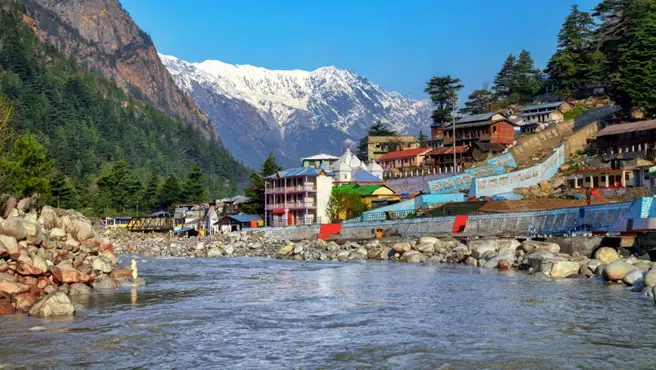
Hotels
•03 min read

The snow leopard is often called the "Ghost of the Mountains." In Ladakh, this elusive creature roams high mountain slopes and rugged terrain. Imagine trekking through pristine landscapes with the chance to spot this majestic animal. This blog post will answer common questions on the snow leopard trek in Ladakh. Here, you will learn about tracking, logistics, conservation, and the overall adventure. By the end, you will understand what the trek entails and why it is a once-in-a-lifetime experience.
The trek leads you through the wild landscapes of Ladakh, with Hemis National Park as a prime location for sightings. This trek blends adventure, high-altitude trekking, and wildlife exploration. Expert trackers and guides join the expedition to help in snow leopard tracking Ladakh and share their great knowledge of nature.
Conservation is key in this region. Local efforts work to protect the endangered snow leopard. Trekking is more than an adventure. It is a way to support snow leopard conservation Ladakh and to further eco-tourism. The sustained efforts help local communities while keeping nature safe.
The best time to start this adventure is during the winter months. From November to March, the weather and snowfall create a better chance for sightings. Snow leopards come closer to lower areas. This makes tracking them easier for wildlife trekking in Ladakh.
The adventure walks you along paths like Zingchen to Rumbak and other routes in Hemis National Park. These remote trekking routes in Ladakh offer a unique experience. Few have walked these paths, making the journey even more special.
The trekking height ranges between 3,500m and 4,500m. This means you must be ready for high-altitude trekking in Ladakh. Simple tips can help with acclimatization. Being in shape can help you enjoy the journey safely.

The prices for a snow leopard trek in Ladakh can vary. A rough estimate is between $1,500 and $3,500 USD for a week-long trip. These covers permits, guide fees, accommodation, and meals. The pricing may be affected by group size, duration, and other factors.
A typical itinerary starts in Leh with a day or two for acclimatization. In the coming days, you will go trekking, review wildlife tracking, and explore local trails. Your schedule balances active trekking with nature observation. The pace is set so you are never rushed.
Accommodations include local homestays and campsites. Such places offer a true sense of Ladakh living. Many local operators use sustainable practices like dry toilets and eco-friendly camping. This ensures that nature remains unspoiled.
Insight Corner: Did You Know?
Every snow leopard trek in Ladakh contributes to conservation efforts. The journey supports local communities and helps protect this endangered species. By joining these expeditions, you are making a difference in wild habitat preservation.
Hemis National Park is the best place to see snow leopards. The chance to spot this creature is higher here. Expert guides use their skills in snow leopard tracking Ladakh to improve your odds. You may also see Tibetan wolves, blue sheep, and Himalayan birds, making it a true Ladakh wildlife adventure.

Photographing wildlife in this region is very rewarding. Keep your camera ready and use a good zoom lens. The best time is when the animals are active during early mornings and late afternoons. Ensure your equipment suits high-altitude and winter conditions.
Snow leopards are primarily seen in Hemis National Park, which is well known for its thriving population.
The trek usually ranges from 3,500m to 4,500m. Acclimatization is recommended.
Costs generally range between $1,500 and $3,500 USD for a one-week trek, depending on details and group size.
Leo, a famous snow leopard from the region, is no longer alive. However, his legacy continues to inspire conservation efforts.
The ideal time is during winter months, from November to March, when the conditions improve for wildlife sightings.
The snow leopard trek in Ladakh is a unique blend of adventure, wildlife observation, and high-altitude trekking. This trek offers more than just a physical challenge; it connects you to nature and a significant conservation cause. With every step on these remote trekking routes in Ladakh, you support efforts to protect an endangered species. The blend of expert guidance, distinctive landscapes, and genuine local support makes this expedition truly special. Take a moment to imagine yourself trekking in Ladakh’s wild and rugged terrain. This is your chance to explore, learn, and contribute to preserving one of nature’s most elusive creatures. Enjoy the path, cherish every moment, and let nature inspire you.